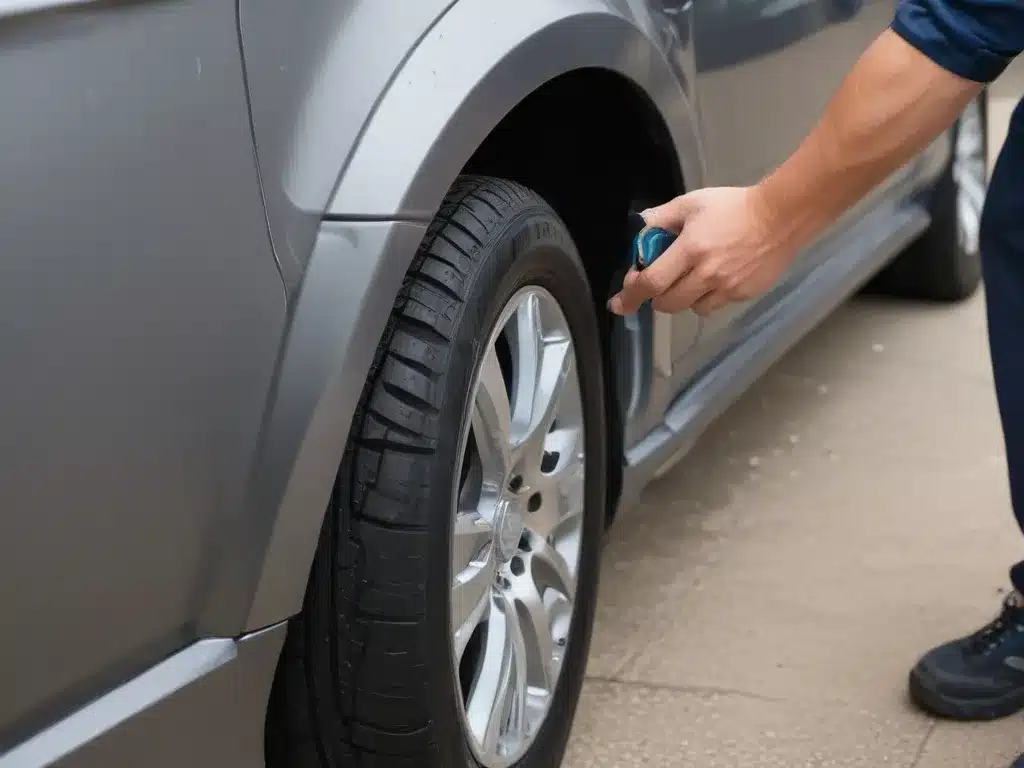Introduction
As a vehicle owner, maintaining the exterior appearance of your car is crucial for preserving its value and prolonging its lifespan. A well-detailed exterior not only enhances the aesthetic appeal but also protects the paint from environmental elements and ensures optimal performance. In this comprehensive guide, I will provide you with an in-depth understanding of the steps involved in detailing the exterior of your vehicle, including the necessary tools, techniques, and products.
Preparing the Workspace
Before diving into the detailing process, it is essential to prepare a suitable workspace. An ideal location should be shaded, clean, and well-ventilated. I recommend using a garage or a covered area to avoid direct sunlight, which can cause the cleaning products to dry too quickly and potentially damage the paint.
Gathering the Required Tools and Products
To effectively detail the exterior of your vehicle, you will need a variety of tools and products. Here are some essential items:
Tools:
- Wash Mitt or Microfiber Towels
- Grit Guards (for separating dirt from the wash bucket)
- Wheel Brushes or Woolly Mammoth Duster
- Clay Bar and Lubricant
- Polishing Machine (optional, but recommended for deeper paint correction)
- Foam Applicator Pads
- Microfiber Drying Towels
Products:
- Car Shampoo or Soap
- Wheel Cleaner
- Tar Remover
- Iron Remover (for removing ferrous particles)
- Clay Bar Lubricant
- Compound or Polish
- Sealant or Wax
- Tire Dressing
- Glass Cleaner
- Trim Dressing
The Detailing Process
Step 1: Wash Your Vehicle
The first step in detailing the exterior of your vehicle is to give it a thorough wash. Begin by rinsing the car with water to remove any loose dirt or debris. Next, fill two buckets with water: one for the car shampoo solution and the other for rinsing the mitt or towels.
Use the grit guards in the rinse bucket to help remove dirt and grime from the mitt or towels. Work in sections, starting from the top and working your way down. Gently scrub the surface with the mitt or towel, frequently rinsing it in the rinse bucket.
Pay special attention to areas prone to dirt buildup, such as the wheels, wheel arches, and lower body panels.
Step 2: Clean the Wheels
Cleaning the wheels is a crucial step in the detailing process. Use a dedicated wheel cleaner and a stiff brush or woolly mammoth duster to agitate and remove brake dust, dirt, and grime from the wheels and calipers.
Be careful not to let the wheel cleaner dry on the wheels, as this can cause staining or damage to the finish.
Step 3: Decontaminate the Paint
Over time, the paint on your vehicle can accumulate various contaminants, such as overspray, industrial fallout, and environmental pollutants. To remove these, you’ll need to use a clay bar and lubricant.
Divide the vehicle’s surface into sections and gently glide the clay bar over each area, using the lubricant to prevent marring or scratching the paint. The clay bar will pick up any contaminants, leaving the surface smooth and ready for polishing.
Step 4: Polish and Protect
Once the paint is decontaminated, it’s time to polish and protect it. Depending on the condition of your paint, you may need to use a compound or a polish.
A compound is a more aggressive product used to remove deeper scratches, swirl marks, and oxidation. A polish, on the other hand, is a finer product that restores gloss and clarity to the paint.
If you’re using a polishing machine, follow the manufacturer’s instructions carefully and work in small sections. Apply the compound or polish with a foam applicator pad and use the appropriate pad and speed settings for your machine.
After polishing, apply a sealant or wax to protect the paint and enhance its shine. These products create a protective barrier against environmental elements, such as UV rays, bird droppings, and acid rain.
Step 5: Dress the Tires and Trim
To complete the exterior detailing process, dress the tires and trim with the appropriate products. Tire dressing enhances the appearance of the tires and provides a sleek, uniform look.
For trim pieces, use a trim dressing or restorer to revive faded or discolored plastic, rubber, and vinyl surfaces.
Step 6: Clean the Glass
Finally, clean the glass surfaces of your vehicle, including the windshield, windows, and mirrors. Use a dedicated glass cleaner and microfiber towels to achieve a streak-free finish.
Maintenance and Protection
After completing the detailing process, it is crucial to maintain the exterior of your vehicle to prolong the effects of your hard work. Regular washing, using a well-maintained car cover, and parking in shaded areas can help protect your car’s paint from environmental elements and minimize the need for frequent detailing.
If you encounter any biohazard-related incidents, such as blood, body fluids, or other potentially hazardous materials, it is recommended to seek professional assistance from a reputable biohazard cleaning service. These specialized services ensure the safe and effective removal of biohazards, protecting your health and maintaining the integrity of your vehicle.
Conclusion
Detailing the exterior of your vehicle is a comprehensive process that requires the right tools, products, and techniques. By following the steps outlined in this guide, you can achieve a showroom-quality finish that not only enhances the aesthetic appeal of your car but also protects it from environmental elements and potential damage. Remember, regular maintenance and protection are key to preserving the results of your detailing efforts.







